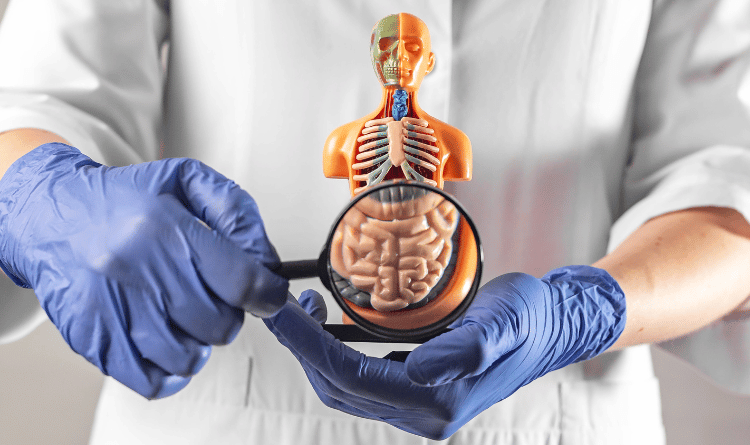We all need the help of specific organs to help in the digestion process. This includes the esophagus, stomach, small and large intestine, rectum, gallbladder, liver, and pancreas. When these organs are affected, they must be treated to improve digestion.
Gastrointestinal disorders alter mucosal and immune function, gut microbiota, and central nervous system processing. This results in significant global healthcare costs and impaired health-related quality of life (QOL).
Many of these gastrointestinal (colon and rectal) diseases can be fatal and require surgical intervention as a treatment. However, these diseases can be prevented or minimized by practicing good bowel habits and maintaining a healthy lifestyle.
What Does Prevention of Gastrointestinal Surgery Include?
Prevention of gastrointestinal surgery requires the following lifestyle changes:
- Eat healthier: Try eating more green leafy vegetables, fruits, nuts, and seeds. Also, avoid carbonated drinks such as soda, bottled water, and spicy or fried foods.
- Include more fiber in your diet: Fiber serves as a big help in preventing digestive issues. It helps maintain heart health and lose weight. Soluble fiber adds gel to your digestive tract, and insoluble fiber creates bulk in your stool. Make sure you are consuming the following items: whole grains, vegetables, fruits, beans, legumes, etc.
- Maintain a healthy weight: Being obese or overweight is a risk factor for various conditions, including many gastrointestinal diseases. Gastrointestinal diseases cause inflammation in many internal organs and reduce immunity. For weight loss, people also go for gastrointestinal surgery. However, complications occur after gastrointestinal surgery, such as duodenal stump blowout and anastomotic leak, respiratory failure, and anastomotic breakdown.
- Eat more frequently: Eating smaller meals more frequently to boost your body’s metabolism. When you eat bigger meals, your digestive system cannot handle much pressure and does not work efficiently. As a result, it overheats and causes acid to flood back into the esophagus. The aftereffects of heartburn are nausea, gas, and vomiting. But eating your meals five to six times can prevent such problems. Make sure your meal contains heart-healthy fat, carbs, and protein.
- Consider probiotic supplements: Try to consume lots of probiotic supplements rich in good bacteria that are healthy for your gut. It is sometimes able to treat people with chronic constipation problems. However, do not take it if you are experiencing diarrhea unless a specific infection causes it.
- Take good sleep: Several digestive disorders have been linked to people who have chronic insomnia, especially those with irritable bowel syndrome (IBS). As you sleep, your body works to fix all the problems in your body.
- Avoid taking stress: Many factors can make your life stressful. However, anxiety and stress can worsen symptoms of indigestion and cause stomach cramps. In addition, the nervous system controls every aspect of the digestion process, which responds to stress. That’s why finding the stress reliever that works best for you is so important.
- Drinking enough water: Water helps the body absorb more nutrients and facilitates the digestive system to break down food more efficiently. Dehydration is associated with digestive disorders. It is also one of the most common causes of chronic constipation, which in turn increases the chances of hemorrhoids.
- Stay active: Staying active and exercising regularly can solve your problem to a greater extent. Make sure to devote 150 minutes of your day to physical activities. You will see the result after only a few days.
To Conclude
If you can control your gastrointestinal issues by following the above suggestion, you should adopt it immediately. However, if your symptoms persist or worsen despite these efforts, it is recommended that you consult a doctor. They can assess your condition, diagnose properly, and recommend appropriate treatment options. It is always better to seek professional medical advice rather than trying to self-diagnose or self-treat your symptoms.



